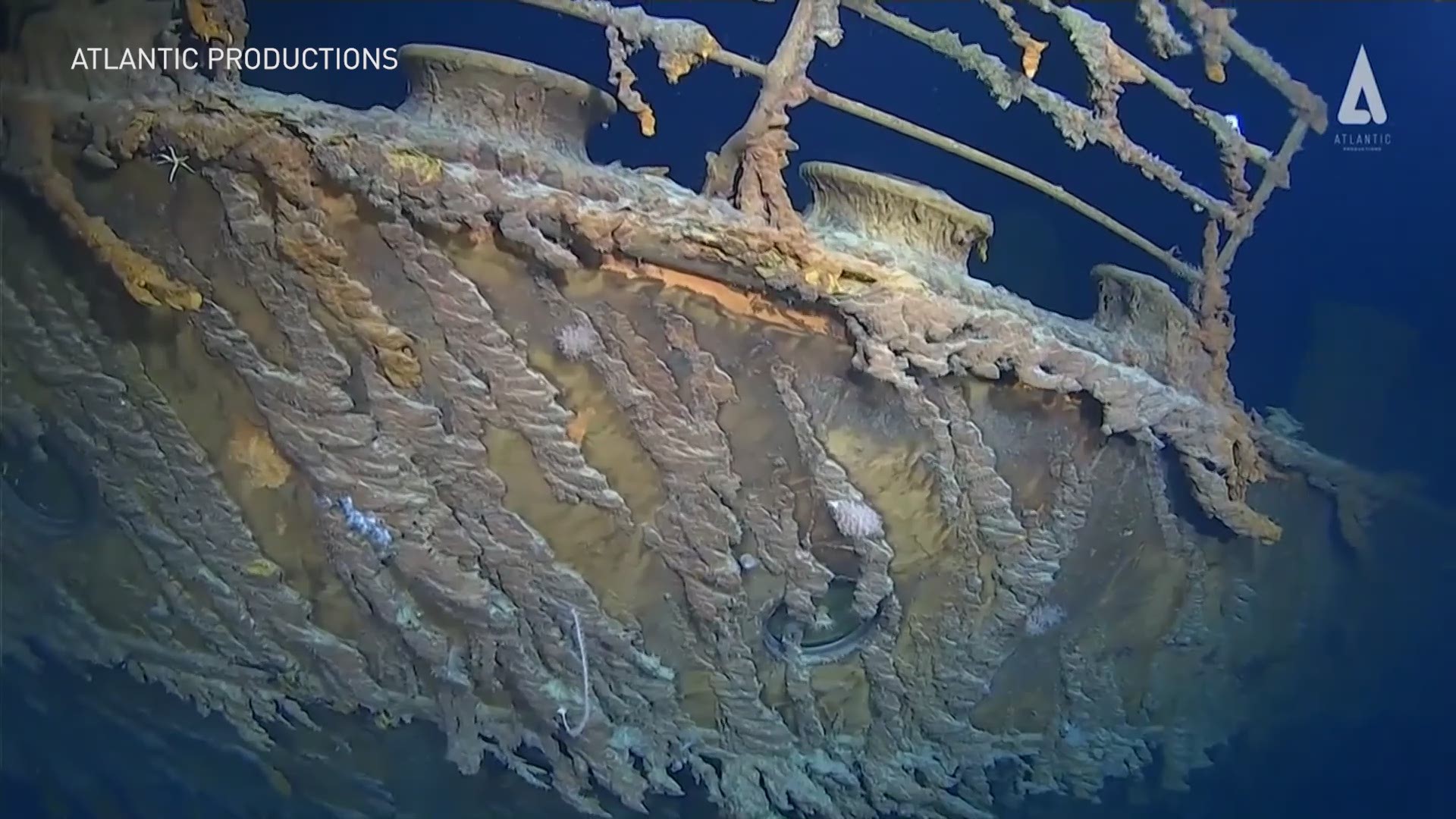A new voyage to the site of the Titanic's final resting place revealed that wreckage is deteriorating rapidly due to bacteria.
For the first time in 14 years, a manned submersible visited the RMS Titanic wreck at the bottom of the North Atlantic Ocean about 370 miles south of Newfoundland, Canada.
The expedition occurred in early August and was led by Victor Vescovo, Titanic historian Parks Stephenson, Rob McCallum, and a team from Triton Submarines.
Titanic historian Parks Stephenson said the "most shocking area of deterioration" was in the officer's quarters, where the captain had his room.
The team discovered that the hull in that area has started to collapse, making it so some of the staterooms are no longer visible.
"Captain’s bath tub is a favourite image among the Titanic enthusiasts, and that’s now gone," Stephenson described in a press release from Atlantic Productions. "That whole deck hole on that side is collapsing taking with it the staterooms, and the deterioration is going to continue advancing.”
The team noted salt corrosion, metal-eating bacteria and deep current action are having the greatest impact on the wreck.
More than 1,500 people were killed when the RMS Titanic struck an iceberg on April 15, 1912, during its maiden voyage.
Vescovo piloted the two-person submersible and said he wasn't quite prepared for how large the wreck site was.
"It was extraordinary to see it all, and the most amazing moment came when I was going along the side of the Titanic and the bright lights of the submersible reflected off a portal and came right back, it was like the ship was winking at me. It was amazing.”
"The future of the wreck is going to continue to deteriorate over time. It's a natural process, these are natural types of bacteria so the reason that the deterioration process ends up being quite a bit faster," said scientist Lori Johnson.
The team plans to publish the full results from their expedition alongside a documentary being made by Atlantic Productions, London. Additionally, they hope the footage will help assess the wreck's current condition and help project it's future, while making it possible to visualize the site using augmented and virtual reality technology.
The Associated Press contributed to this report.

